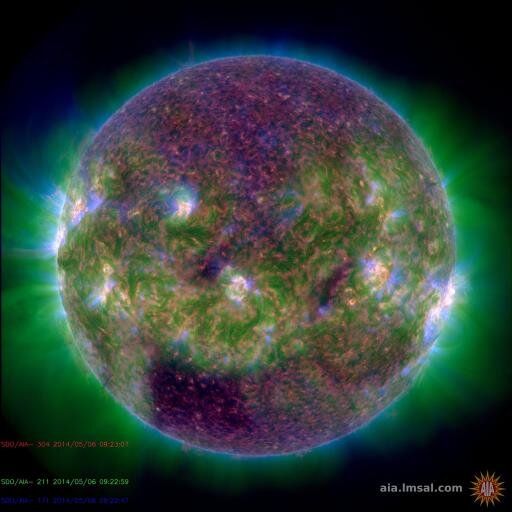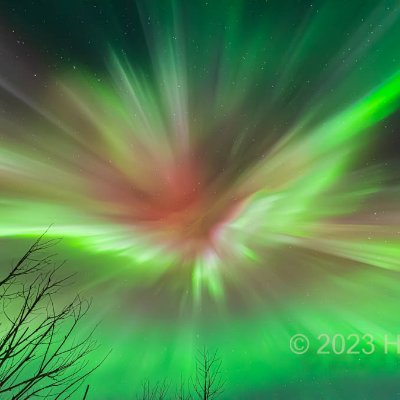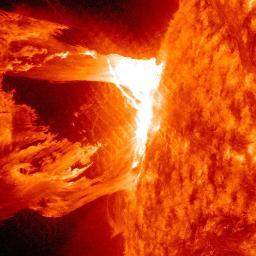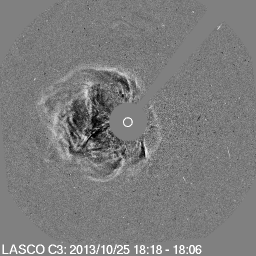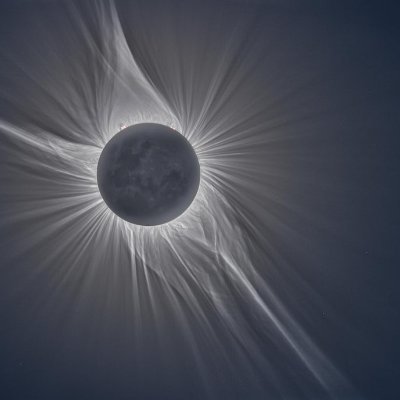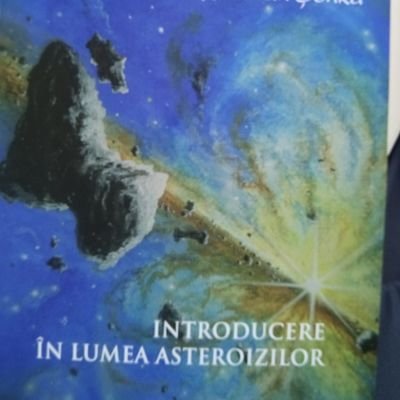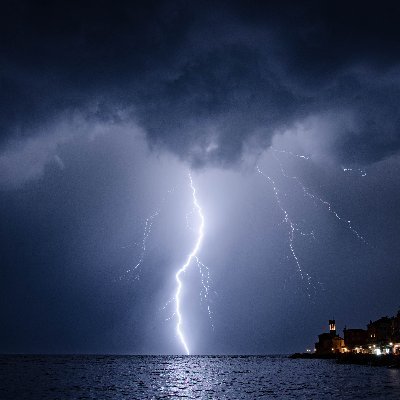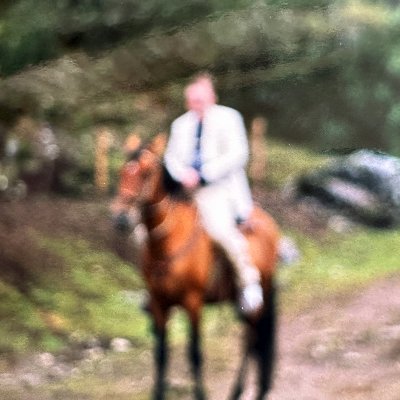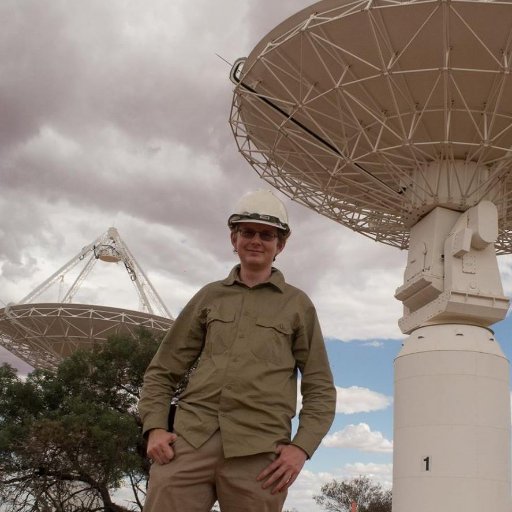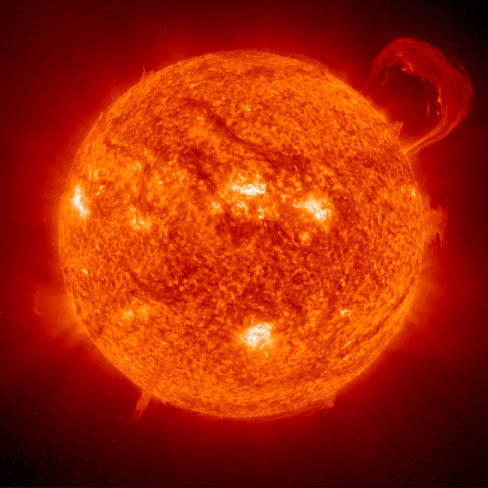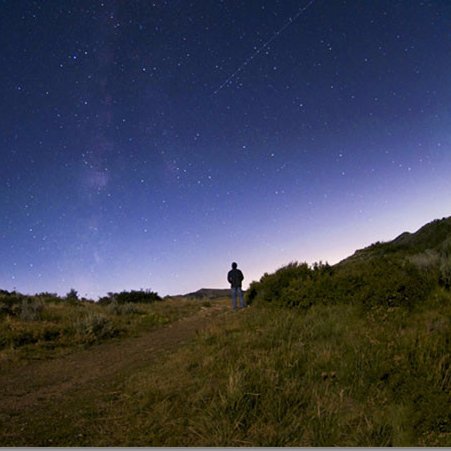Similar User

@Astro_Romania

@uefiscdi

@barat_saugata

@BhuniaShilpi

@dbionescu

@minhhoanggia

@AVenhola

@hafo821

@ang_holding

@tovarmariaamm_
Today's surprise X2.2 solar flare came from sunspot region 3912. It peaked at 09:06 UTC and was impulsive. It did produce a minor coronal mass ejection but it is heading west and is thus not aimed at our planet.

X FLARE! The Sun just produced it 72nd X flare of this cycle (compares to just 27 at the same stage of the last cycle). It was an X2 event located near the west limb of the Sun so if it produced a CME it is likely to hit Earth.

An X2.2-class flare just popped off the Sun! This is the first large flare since the outage of the Solar Dynamics Observatory - which usually provides us with high resolution images of these events. We have other lower-resolution sources (GOES/SUVI) - I'll post when available!

Major X2.29 flare Follow live on spaceweather.live/l/flare

X2.29 flare with CME about half an hour ago. The spectrogram was obtained with RX-888 MKII and tri-band dipole antenna, software by Nathan Towne, rx2fits. Type III and type II radio bursts and HF blackout clearly visible on the spectrum. Background was subtracted.

Simo M-class M3.2 solar flares produced by AR13910(West limb) and AR13917(East limb). #Sun #Spaceweather
Another M-Class solar flare from AR13917, as it turns to face Earth, an M2.3 at 1207. 1308 UTC #Spaceweather #Sun
🎉

🔴 Live now: coverage has started for the launch of our Proba-3 mission on a PSLV-XL rocket from Satish Dhawan Space Centre in Sriharikota, India 👉 esawebtv.esa.int
Successful liftoff for Proba-3, the first mission to create an artificial total solar eclipse by flying a pair of satellites 👉 esa.int/Enabling_Suppo…
LIFTOFF of @CopernicusEU #Sentinel1 C on Vega-C's return to flight from Europe's Spaceport in French Guiana on 5 December 2024!
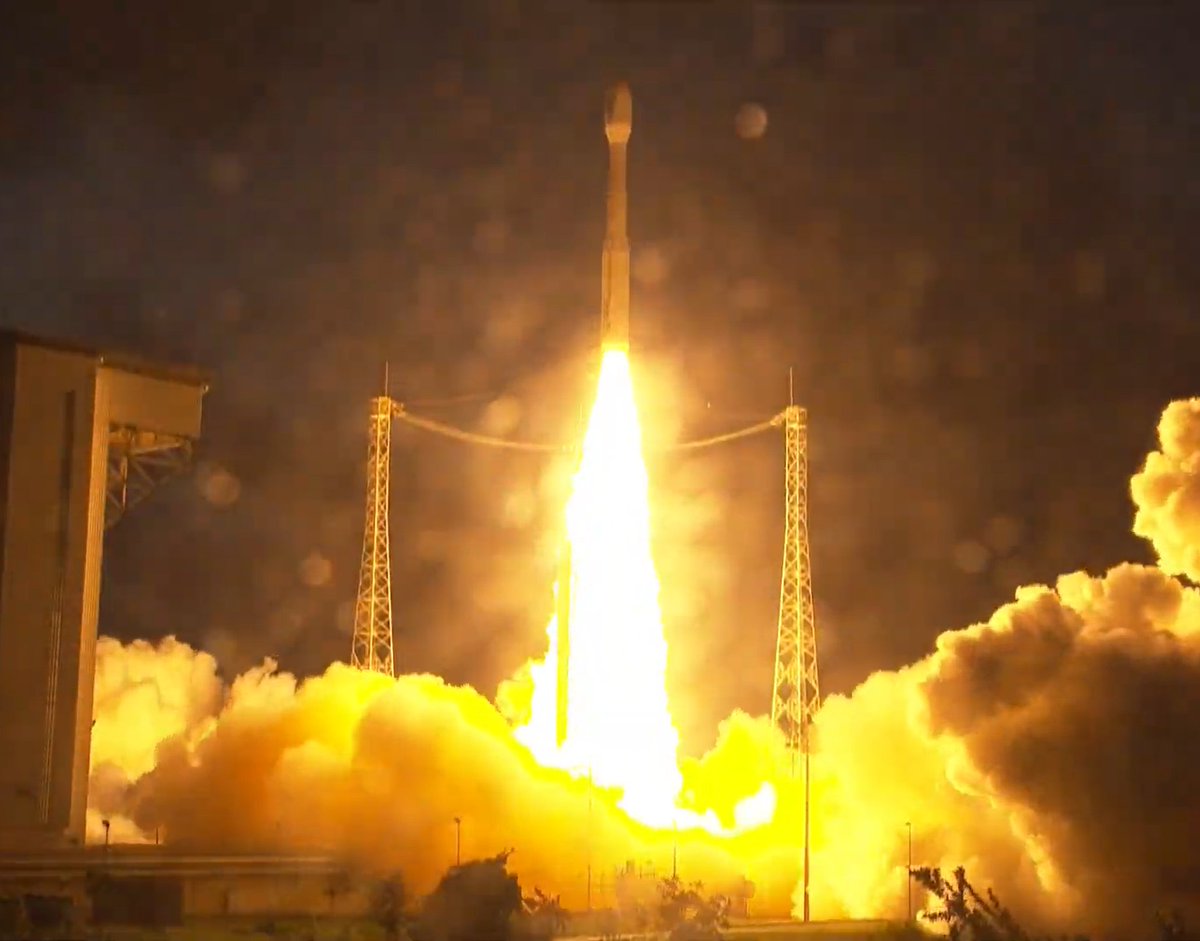
Unidentified Flying Object: Perhaps the eagle-eyed saw this object in my previous 2 tweets. A bright object is moving faster than the stars (so isn't a star) but in the same direction so, it is orbiting the Sun between SOHO and the Sun. What is it? An asteroid, comet, space Junk?
Impressive radio bursts complex after the X9.05 flare of today. The type II radio burst is often associated with a CME. The spectrogram was obtained with CALLISTO instrument of Bucharest, Romania. #callisto #radiosun e-callisto.org

Coronal holes #97 and 98 will begin to face Earth this week. A solar wind influence contributing to a geomagnetic disturbance may be possible beginning this weekend. Image by GOES-16 SUVI. SolarHam.com

Newly-discovered #asteroid 2024 XA passed only 843 miles above the Pacific Ocean yesterday. This shortened its orbital period from 4 years to 1.5 years, ensuring it will make more frequent close encounters with Earth. It is 1-3 meters wide.
Solar Cycle 25 continues to outpace Solar Cycle 24: After 58 months into the current solar cycle (SC25), it has produced nearly 4 times as many M flares as SC 24 by the same stage and already passed the total over the entire SC24 by 83% (1348 compared to just 738).

Eruptive M1.9 flare in AR 13901. A nice coronal wave is seen in this animation. This is consistent with the CME mostly going southeast - only a glancing blow may be possible if the CME comes to Earth. But I can be wrong...
Huge Sunspot Groupo Coming over the NE limb of the Sun: It was probably the origin of the M9.5 earlier today. Interesting to see what it looks like once it has rotated onto the solar disk. It seems to have produced 7 M flares already today!

Incredible footage of Plasma ejecting from sun...
INCOMING: This is best seen full screen. A comet is heading directly for the Sun. It is coming from about 5 o'clock. It is hard to see initially due to the proton strikes from yesterday's S2 radiation storm. Note how the tail increase when it is hit by the CME from the SW
This eruption has caused the most energetic solar #RadiationStorm since the 2005 or possibly the 2003 Halloween events (i.e. very hard spectrum). This means it was a BIG eruption. Likely launched from Region 3889 or 3897 on the Sun's farside, this #solarstorm doesn't appear to…
News: There was a major eruption behind the west limb around 18:00 UT on November 21, 2024. The CME drove a shock wave that accelerated protons to > 500 MeV. Too bad neither PSP no SolO was at favorable locations to observe the event in remote sensing or in situ.

United States Trends
- 1. Remy 16,5 B posts
- 2. $CUTO 7.465 posts
- 3. Papoose 6.590 posts
- 4. NYSE 24,9 B posts
- 5. $LINGO 36 B posts
- 6. Claressa 4.341 posts
- 7. New York Stock Exchange 40,8 B posts
- 8. Person of the Year 142 B posts
- 9. Good Thursday 33,1 B posts
- 10. Our Lady of Guadalupe 6.933 posts
- 11. Zuck 5.195 posts
- 12. Cutoshi Farming N/A
- 13. #ThursdayThoughts 2.363 posts
- 14. Happy Friday Eve N/A
- 15. YouTube TV 96,4 B posts
- 16. Gukesh 109 B posts
- 17. #ThursdayMotivation 5.766 posts
- 18. #PlayStationWrapUp2024 N/A
- 19. Time Magazine 67,4 B posts
- 20. Man of the Year 26,7 B posts
Who to follow
-
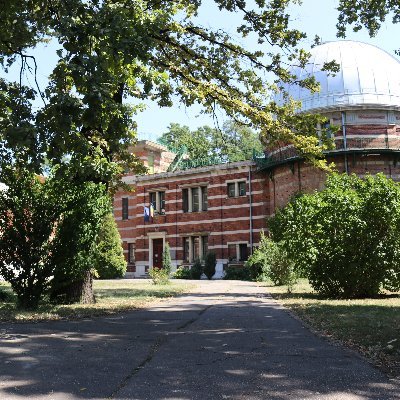 Astronomical Institute of the Romanian Academy
Astronomical Institute of the Romanian Academy
@Astro_Romania -
 uefiscdi.ro
uefiscdi.ro
@uefiscdi -
 Saugata Barat
Saugata Barat
@barat_saugata -
 Shilpi Bhunia
Shilpi Bhunia
@BhuniaShilpi -
 Diana Besliu-Ionescu
Diana Besliu-Ionescu
@dbionescu -
 Minh Hoang
Minh Hoang
@minhhoanggia -
 Aku Venhola🇺🇦
Aku Venhola🇺🇦
@AVenhola -
 /dev/null
/dev/null
@hafo821 -
 ANG Luxury Properties
ANG Luxury Properties
@ang_holding -
 ℳ𝒶𝓇𝒾𝒶𝓂𝓂💋
ℳ𝒶𝓇𝒾𝒶𝓂𝓂💋
@tovarmariaamm_
Something went wrong.
Something went wrong.



